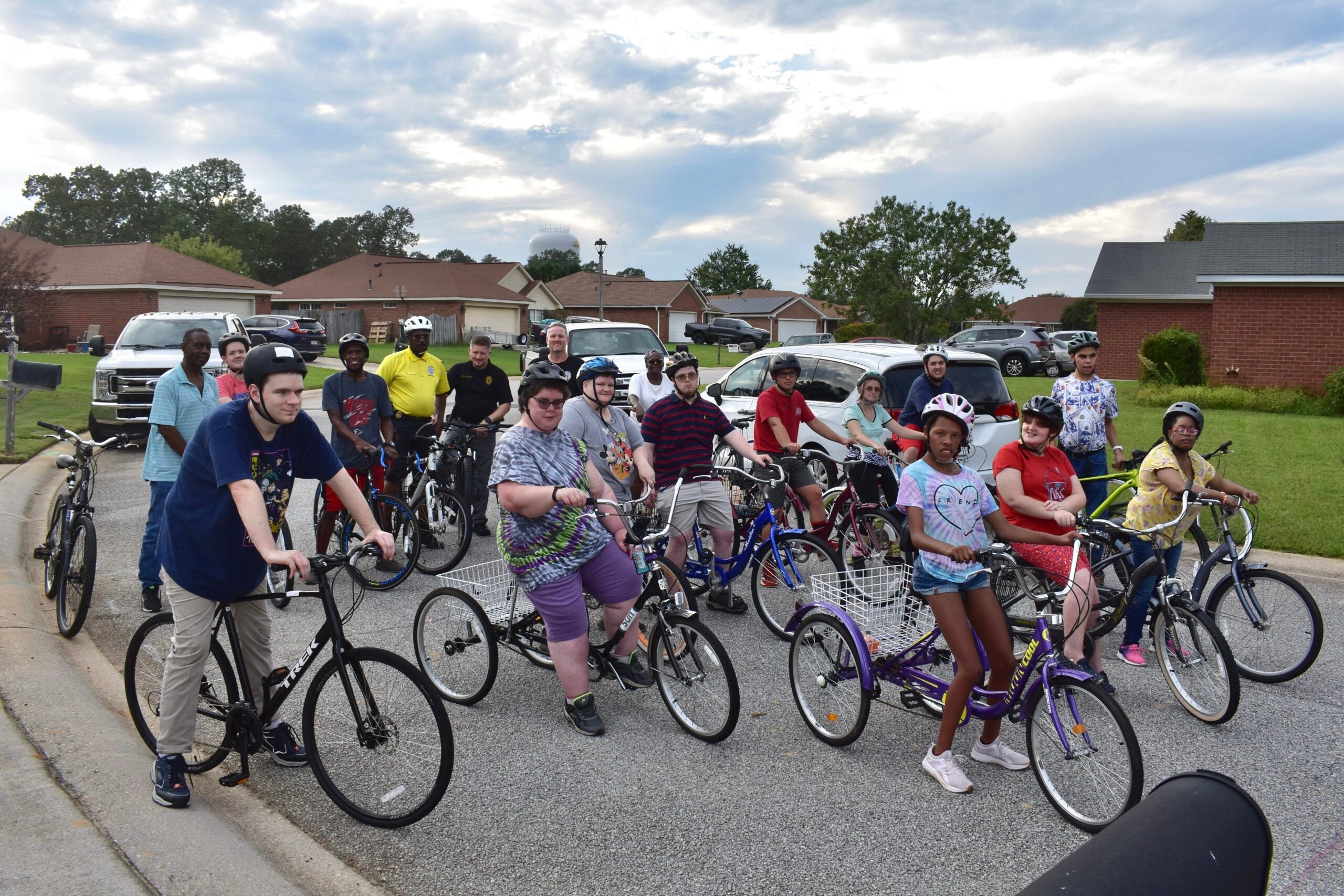Training for Special Olympics Georgia’s State Fall Games in Valdosta, Ga, many athletes in the Augusta Stars are brushing up their cycling skills to compete Oct. 6-8.
While the competition includes a variety of categories and sports, such as: bocce, cycling, golf, softball team play and softball individual skills, the athletes most recently gathered Tuesday evening, Sept. 5, to work on speed and stamina for the biking portions.
With athletes, like those part of the Augusta Stars, sometimes being overlooked and underestimated, Jeff Keating, public relations manager and coach, said community exposure to competitors’ actual capabilities and accomplishments help develop local awareness.
“They have a right to life, liberty and happiness just like everyone else,” he said. “It makes us a better society to be aware of one another, and bringing it all together allows individuals to become more aware about what these athletes can do and how they benefit society – they have their roles to play as well.”
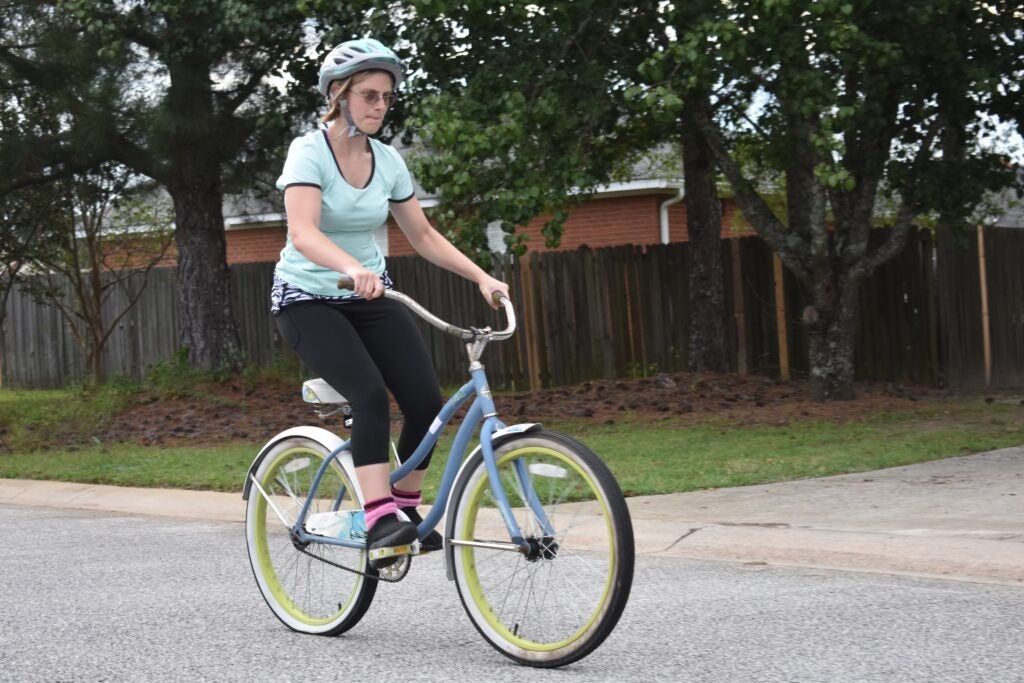
Practicing often in the Summerfield Subdivision in Grovetown, local police department officers and officials joined in on the fun to encourage cyclists as they endured the summer heat and humidity with smiling faces.
“We try to build community support … we want them to get to know our athletes and see how there are individuals with different physical capabilities out there, and for the athletes to know that local police are their friends,” said Keating.
While Grovetown Police Department’s Chief of Police Jamey Kitchens, Assistant Chief of Police Robert Eastman and Capt. Christopher Powell cycled side-by-side with athletes, Officer Brittany Nelson enforced neighborhood speed limits with a watchful eye in a closeby patrol car.
“For these kids, this means the world to them to be able to participate in these games, so anything that we can do to help encourage them along is something we want to do,” said Kitchens.
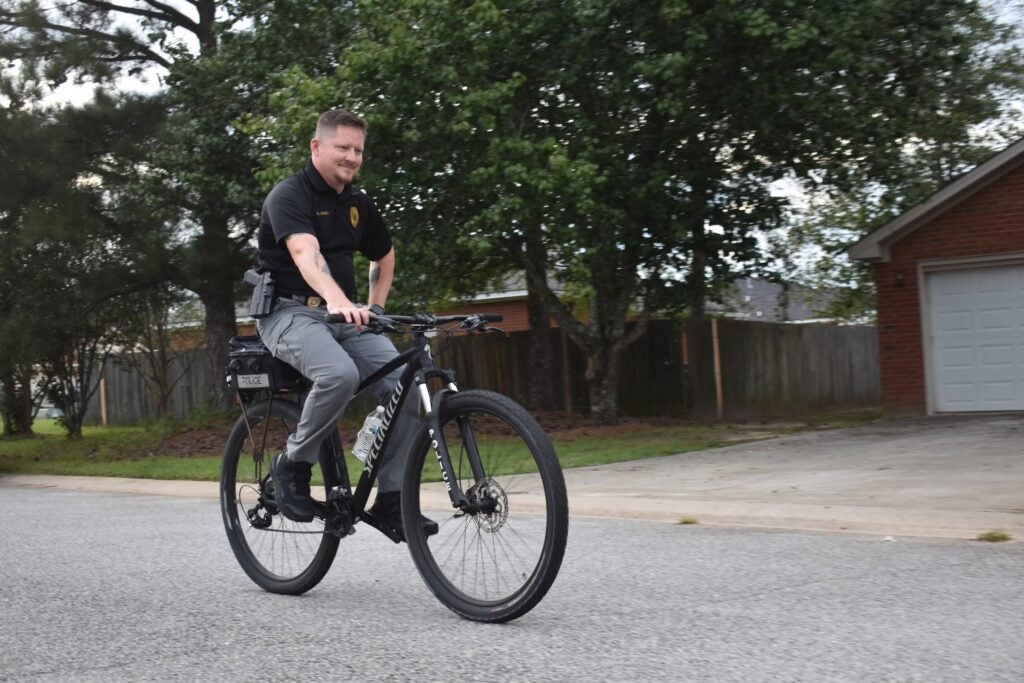
Wanting to prevent and lessen the “us versus them” mentality often associated with law enforcement, Kitchens said lending a hand where needed allows officers to be associated with uplifting community programs, such as the Augusta Stars.
“We need to build good relationships with the community, because at the end of the day law enforcement does not come from another planet; we’re comprised of members from the community, and we can’t do this alone,” he said.
Fighting a different kind of stereotype by defying odds and gaining a sense of accomplishment through physical successes, Keating said the Augusta Stars prioritize inclusivity by meeting the needs of all its athletes. Even one of Keating’s sons, who is blind and nonverbal, has a tandem three-wheel bike in which he is able to enjoy the fresh air as well.
“I don’t specifically know in total what his purpose is in life, but it’s been God’s purpose to touch others’ lives … here my son is riding a bicycle,” Keating said. “He also bowls and swims. There are also lots of challenges, but he has a purpose and he has a fruitful life.”
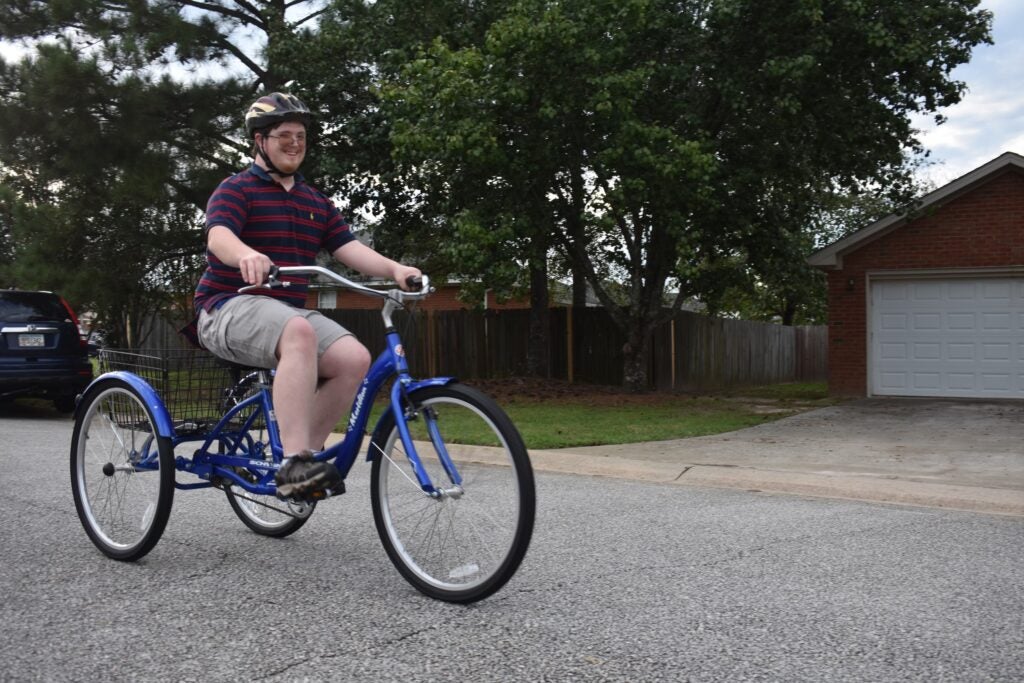
Although most bicyclers were confined to a half mile loop within the neighborhood to practice for the 500 and 1,000-meter races, some were training for the upcoming competition’s more strenuous 5K and 10K events.
However, for many participating athletes, Fall Games’ preparation is about having fun, traveling, making new memories, community and pushing one’s body to go the distance.
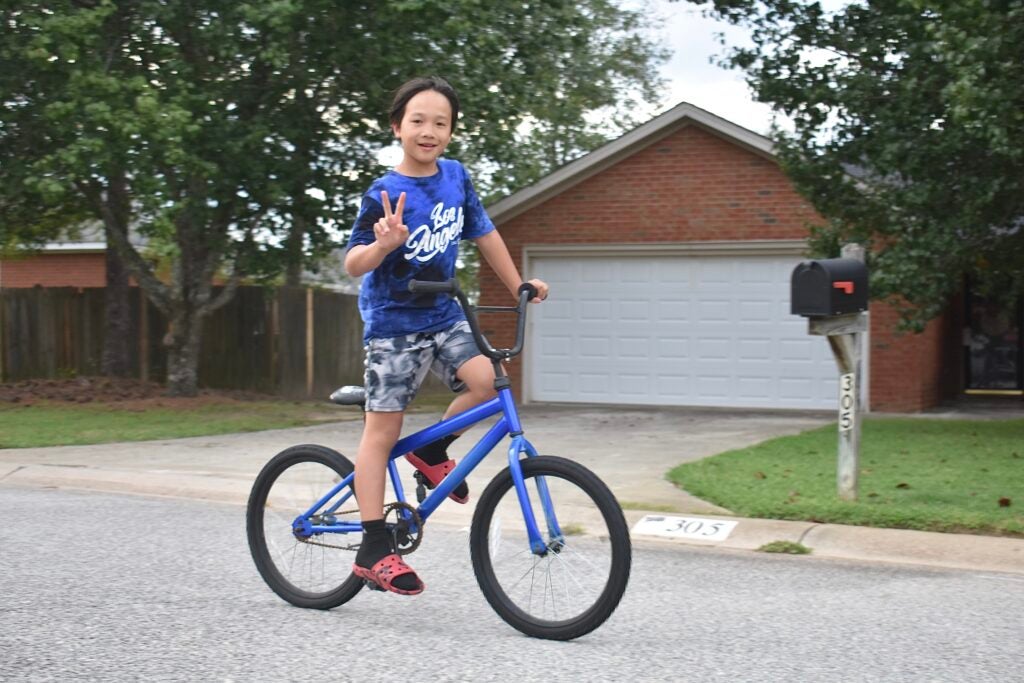
“I get to have people like me to talk to,” said 40-year-old athlete Chris Powell, whose medical condition caused a coma and brain hemorrhages which led to a diagnosis of intellectual impairment. “I train every day [for the competition.]”
To mother Tina Powell, the Augusta Stars has helped her adult son gain friends who understand situations and difficulties others may not.
“This is a wonderful opportunity for our special children,” she said. “Coming out of school, they really don’t have that many opportunities to do sports activities … so we were very fortunate to have special olympics as Chris has become an adult.”
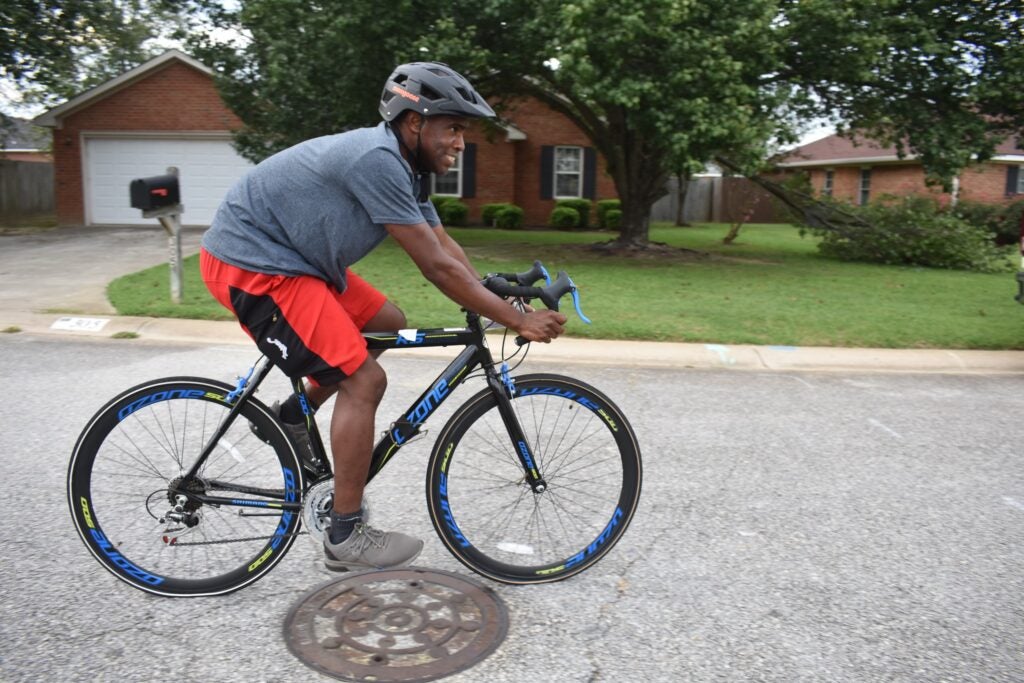
Although Chris Powell gets great gratification from being around those similar to himself, his mother said he also wants to be a part of “regular society.”
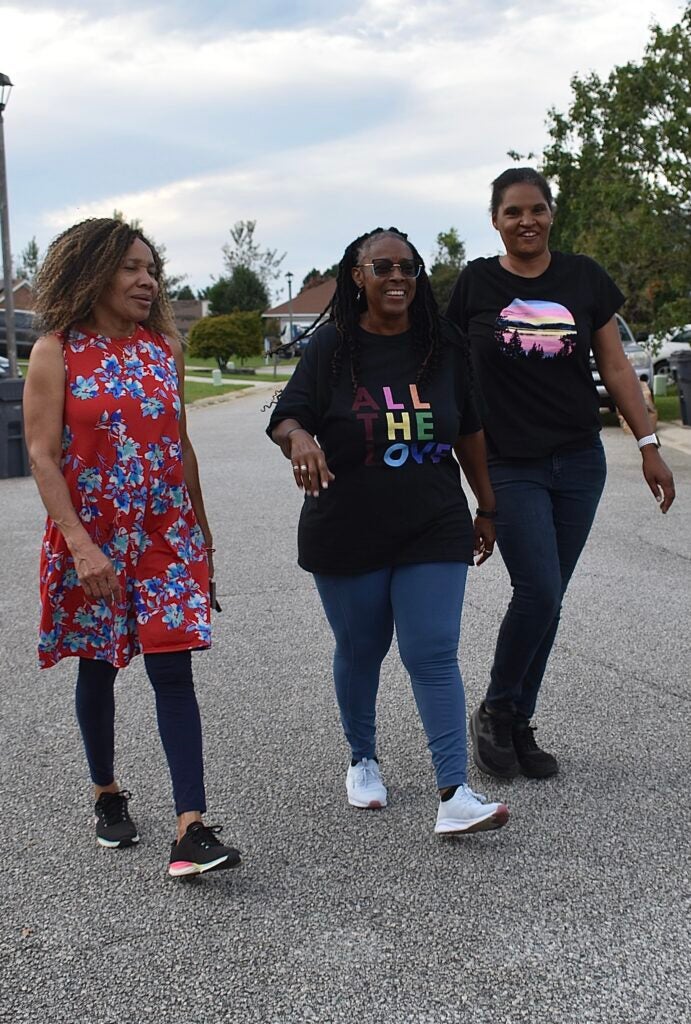
“That’s great, but society is not always kind. So, sometimes, it’s just easier to be around his special needs peers, because he loves to be around people,” she said.
By assembling athletes together, Tina Powell said the organization has also connected a strong allegiance among the involved parents.
“We’re like a support group for each other, so we help each other find activities for our guys, and we’re a pretty dedicated group,” she said. “So it’s good. I really like the friendships that we’ve bonded here, and that we’ve come together here in this special needs community.”

